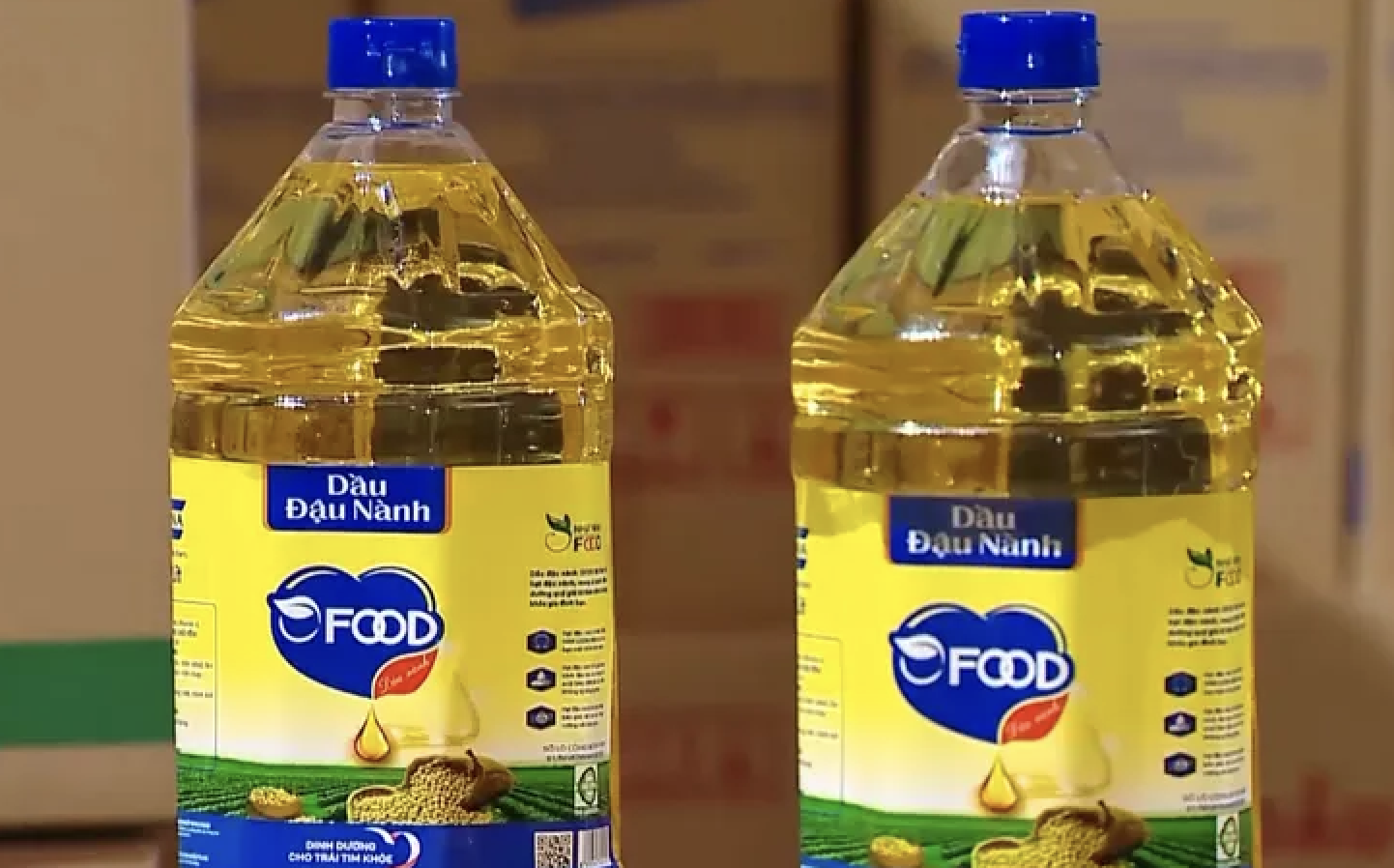A massive food fraud case involving tens of thousands of tons of cooking oil made from livestock-grade vegetable oil has triggered public alarm and a swift response from Vietnamese authorities.
The Ministry of Industry and Trade and the Ministry of Health have both addressed the scandal, in which OFood-branded oil-produced from ingredients intended for animal feed-was sold as edible cooking oil.

Vegetable oil intended for animal feed was repackaged and sold as human-grade OFood cooking oil. Photo: VTV
On the evening of June 24, VTV reported that police in Hung Yen Province dismantled a sprawling fake oil operation. The culprits have been charged with producing and trading counterfeit food and smuggling, after generating over 8.2 trillion VND (approximately 322 million USD) in revenue.
Investigators found that the suspects repurposed animal-feed-grade vegetable oil and falsely declared it as containing vitamin A, a mandatory micronutrient under Vietnamese law. Lab tests later confirmed the absence of vitamin A in OFood products, marketed by Nhat Minh Food Manufacturing and Import-Export Co., Ltd.
Dang Thi Phuong, Director of Nhat Minh Food, admitted the oil was primarily sold to industrial kitchens and restaurants. Co-defendant Nguyen Trong Nang, Director of An Duong Trading and Services Co., Ltd., disclosed that the oil was also used in snack production, salad preparation, and distributed across food processing villages like Hoai Duc.
In response, the Ministry of Health's Food Safety Department emphasized that under Article 39 of Decree 15/2018, the Ministry of Industry and Trade (MOIT) holds primary responsibility for food safety oversight of vegetable oil. This includes the entire chain of production, processing, and distribution.
The department also warned that consuming such misused oil poses health risks. It urged food production and catering facilities-especially mass kitchens and meal suppliers-to verify suppliers' product declaration and ingredient documentation, not just rely on packaging and labels.
Businesses are advised to avoid using misdeclared materials in food preparation, even if documentation appears complete. Suspected cases should be reported promptly to relevant authorities.
Trade Ministry explains oversight delegation
Speaking to VietNamNet on June 25, a MOIT representative confirmed that oil without additional micronutrients (beyond mandatory vitamin A) is regulated by the Ministry of Industry and Trade. Products containing added nutrients fall under the Ministry of Health’s purview.
Most food safety monitoring has been delegated to provincial governments. For instance, in Hung Yen, the provincial Department of Industry and Trade is responsible for receiving product declarations and conducting follow-up inspections.
Under Decree 15, businesses self-declare product compliance and are solely accountable for their goods. Provincial departments collect these declarations and report issues as needed. "Only specialized items like pharmaceuticals or dietary supplements require Ministry of Health registration," the official added.
Even the issuance of food safety certificates has largely been decentralized to local authorities, reflecting Vietnam’s current regulatory approach that favors openness and enterprise autonomy.
Tam An & Vo Thu